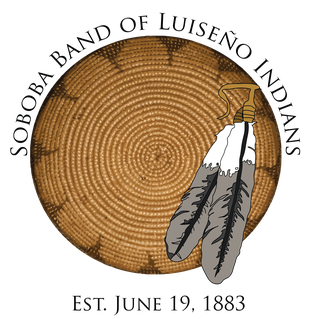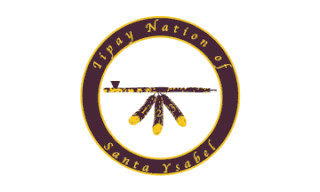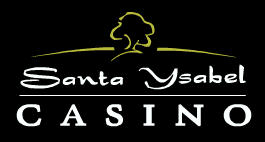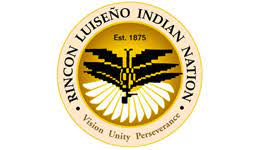
Native American gaming comprises casinos, bingo halls, slots halls and other gambling operations on Indian reservations or other tribal lands in the United States. Because these areas have tribal sovereignty, states have limited ability to forbid gambling there, as codified by the Indian Gaming Regulatory Act of 1988. As of 2011, there were 460 gambling operations run by 240 tribes, with a total annual revenue of $27 billion.

Foxwoods Resort Casino is a hotel and casino complex owned and operated by the Mashantucket Pequot Tribal Nation on their reservation located in Ledyard, Connecticut. Including six casinos, the resort covers an area of 9,000,000 sq ft (840,000 m2). The casinos have more than 250 gaming tables for blackjack, craps, roulette, and poker, and have more than 5,500 slot machines. The casinos also have several restaurants, among them a Hard Rock Cafe. It has been developed since changes in state and federal laws in the late 20th century enabled Native American gaming on the sovereign reservations of federally recognized tribes.

The Sycuan Band of the Kumeyaay Nation is a federally recognized tribe of Mission Indians from Southern California, located in an unincorporated area of San Diego County just east of El Cajon. The Sycuan band are a Kumeyaay tribe, one of the four ethnic groups indigenous to San Diego County.
Michael J. Malik Sr. is a developer and entrepreneur from Detroit, Michigan who resides in Birmingham, Michigan. Currently his net worth is $750,000,000.

Morongo Casino, Resort & Spa is a Native American gaming casino, of the Morongo Band of Cahuilla Mission Indians, located in Cabazon, California, United States, near San Gorgonio Pass. The casino has 310 rooms and suites. A 44-acre (180,000 m2), 27-story resort, Morongo is one of the largest casinos in California. At 330 feet (101 m) high, the casino tower is the tallest building in both Riverside County and the larger Inland Empire region.

The Pechanga Resort Casino is a Native American casino on the Pechanga Indian Reservation adjacent to the city of Temecula, California. Pechanga Resort Casino is one of the largest casino/resorts in the United States, with more than 5,400 slot machines and approximately 200,000 sq ft (19,000 m2) of gaming space.

Viejas Casino & Resort is a hotel casino and outlet center owned by the Viejas Band of Kumeyaay Indians in Alpine, California. The casino has over 2,000 slot machines, up to 86 table games, three restaurants, a deli, bingo, an off-track betting facility, a lounge, concert venues and multiple indoor and outdoor meeting spaces. Opened in March 2013, the original hotel had 128 rooms; an expansion was completed in October 2015 with the opening of an additional hotel tower with 109 deluxe rooms and luxury suites increasing hotel accommodations to a total of 237 rooms and suites.

The Campo Indian Reservation is home to the Campo Band of Diegueño Mission Indians, also known as the Campo Kumeyaay Nation, a federally recognized tribe of Kumeyaay people in the southern Laguna Mountains, in eastern San Diego County, California. The reservation was founded in 1893 and is 16,512 acres (66.82 km2).

Wildhorse Resort & Casino is a casino owned and operated since 1994 by the Confederated Tribes of the Umatilla Indian Reservation in the U.S. state of Oregon. It is located 5 mi (8 km) east of Pendleton, on the Umatilla Indian Reservation, near Interstate 84.
California v. Cabazon Band of Mission Indians, 480 U.S. 202 (1987), was a United States Supreme Court case involving the development of Native American gaming. The Supreme Court's decision effectively overturned the existing laws restricting gaming/gambling on U.S. Indian reservations.

The Soboba Band of Luiseño Indians is a federally recognized tribe of Luiseño people, headquartered in Riverside County, California. On June 18, 1883, the Soboba Reservation was established by the United States government in San Jacinto. There are five other federally recognized tribes of Luiseño people in southern California.
The Cabazon Band of Cahuilla Indians is a federally recognized tribe of Cahuilla Indians, located in Riverside County, California. They were formerly known as the Cabazon Band of Mission Indians.

The Morongo Band of Mission Indians is a federally recognized tribe in California, United States. The main tribal groups are Cahuilla and Serrano. Tribal members also include Cupeño, Luiseño, and Chemehuevi Indians. Although many tribes in California are known as Mission Indians, some, such as those at Morongo, were never a part of the Spanish Missions in California.

The Santa Ysabel Band of Diegueño Mission Indians of the Santa Ysabel Reservation is a federally recognized tribe of Kumeyaay Indians, who are sometimes known as Mission Indians.

The La Posta Band of Diegueño Mission Indians of the La Posta Reservation is a federally recognized tribe of the Kumeyaay Indians, who are sometimes known as Mission Indians.

The Barona Group of Capitan Grande Band of Mission Indians of the Barona Reservation is a federally recognized tribe of Kumeyaay Indians, who are sometimes known as Mission Indians.

The Viejas Group of Capitan Grande Band of Mission Indians of the Viejas Reservation, also called the Viejas Band of Kumeyaay Indians, is a federally recognized tribe of Kumeyaay Indians.

Santa Ysabel Resort & Casino was an Indian owned and operated casino located on the Santa Ysabel Indian Reservation in Santa Ysabel, California. It was owned and operated by Santa Ysabel Band of Diegueño Indians. The casino had 349 slot machines and six gaming tables as well as live poker and live blackjack. It is also in close proximity to Lake Henshaw, Julian and Warner Springs. The Santa Ysabel tribal Chairman is Virgil Perez. Although it was called "Santa Ysabel Resort & Casino," there was no established casino, resort or hotel.

The Rincon Band of Luiseño Indians are a federally recognized tribe of Luiseño who live on the Rincon Indian Reservation in Valley Center in San Diego County, California. It is one of six such tribes in Southern California that are composed of Luiseño people. The Luiseño are considered one of the groups of the California Mission Indians.

Jamul Casino is a Native American gambling enterprise run by the Jamul Indian Village on their 6-acre reservation in Jamul, California.

















